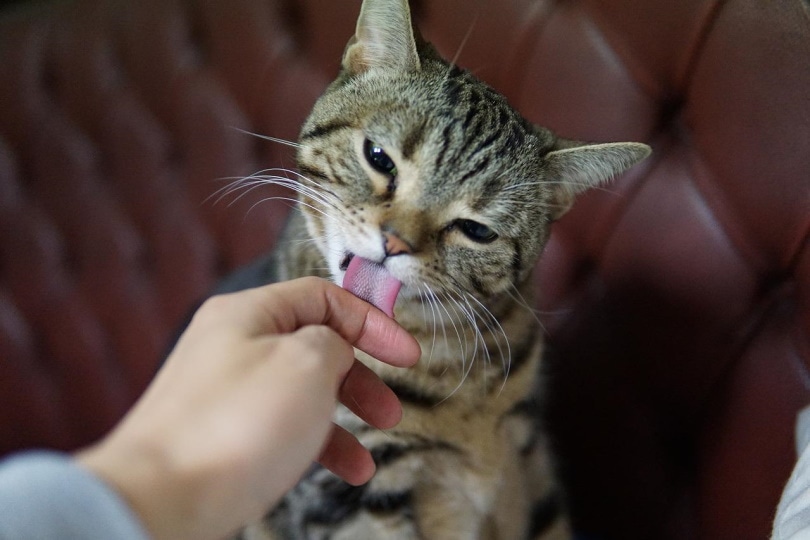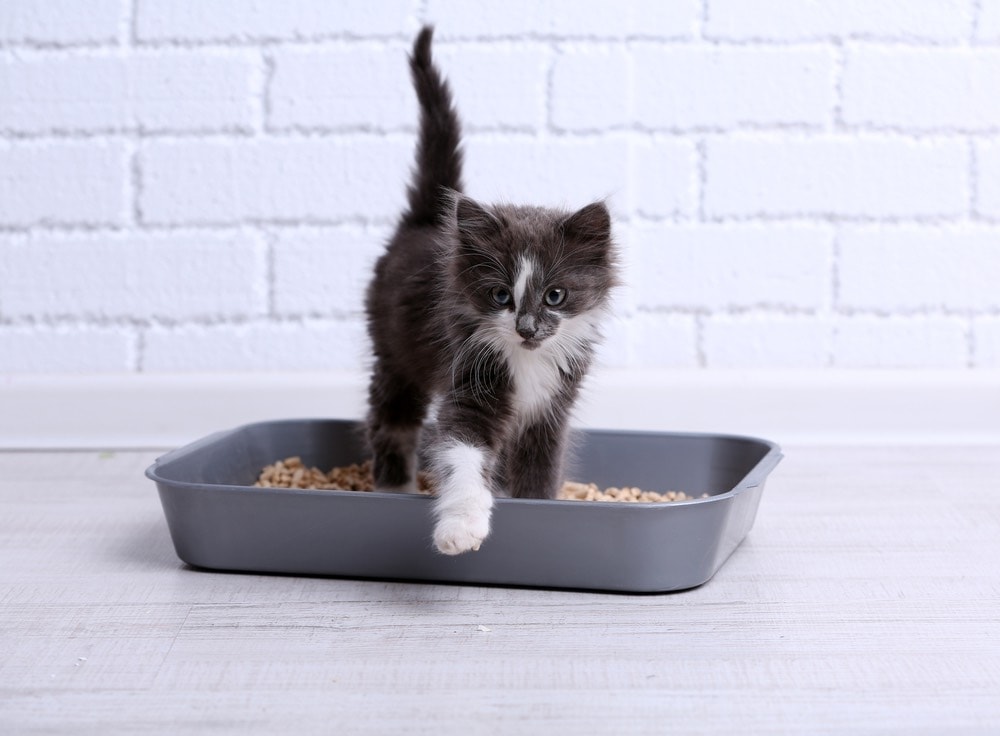Does Stress Cause Hair Loss in Cats? 5 Vet-Approved Tips to Reduce Distress
By Jessica Kim
Updated on
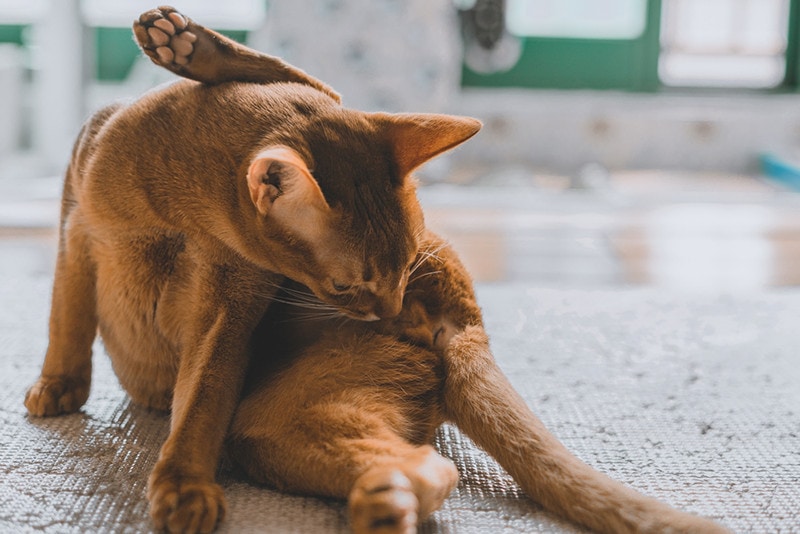
Hair loss can be a challenging and frustrating issue for cats because it can be difficult figuring out its cause. In some cases, cats can experience hair loss due to stress and anxiety. This occurrence is often referred to as psychogenic alopecia.
Hair loss is typically a sign that points to other underlying issues affecting your cat. So, it’s important to work with your veterinarian to diagnose the cause. Here’s some important information you need to know if your cat’s starting to experience hair loss.
 What Is Psychogenic Alopecia?
What Is Psychogenic Alopecia?
The condition of a cat’s skin and coat is a great indicator of a cat’s health. Any abnormal issues with the coat can point to all kinds of underlying health concerns.
In some cases, cats can develop psychogenic alopecia if they’re chronically stressed or anxious. It’s initiated when a cat feels distressed. They will start to self-groom as a way to soothe themselves but this behavior eventually turns into a compulsive behavior. The skin then becomes swollen and cats may also bite or chew at their skin, particularly the area around the flanks, pulling out their hair. Chronic hair-pulling and self-grooming will eventually lead to bald spots, irritated skin, and skin infections.
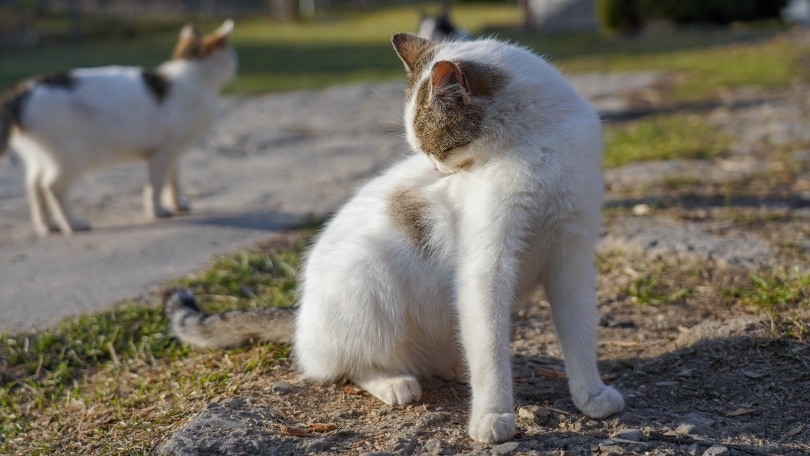
What Causes Psychogenic Alopecia in Cats?
Cats can feel stress and anxiety from all kinds of factors. It could be anything from moving to a new home, living with other animals, or switching to a new diet. Cats are creatures of habit that settle into their routines and don’t like to deviate from them. If there are sudden changes, they may start to feel stressed.
While psychogenic alopecia is marked by hair loss, you can also see some of the following signs that accompany this health condition:
- Overgrooming
- Skin redness
- Skin irritation
- Skin rashes and scabs
Diagnosing psychogenic alopecia involves further testing administered by a veterinarian. Veterinarians will do a series of diagnostic tests, like blood tests, skin tests, and urine tests. These tests try to locate other abnormalities in the cat’s health that may be causing hair loss. Other causes of hair loss could include allergies, bacterial infections, and parasitic infestations.
Psychogenic alopecia is difficult to treat, and cat owners can expect long-term or lifelong treatment of the condition. The severity of baldness can fluctuate, and some cats may also end up causing injury to their skin due to excessive licking, scratching, or biting. It’s often helpful to bring in the professional help and expertise of a cat behaviorist to figure out a wellness plan for your cat.
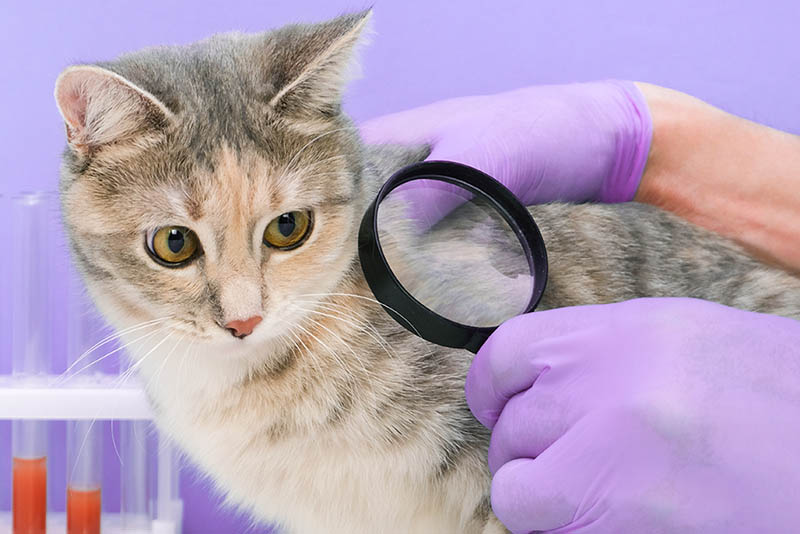
The 5 Vet-Approved Tips to Reduce Stress
1. Figure Out What Is Causing the Stress
It’s often helpful to re-evaluate and reflect on any recent changes your cat may have experienced. Moving to a new home or bringing home a new pet, child, or roommate can trigger stress. So, check to see if there are any correlations to recent changes to your cat’s routine and its behavior.
Changes in your own routine and behavior can also start to make your cat feel stressed out. For example, if your routine has changed due to a new job or you’ve been stressed out by a new project at work, your cat can notice this change and be affected by it.

2. Create Safe Spaces for Your Cat
Sometimes, stress can go away as your cat gets used to new changes and adopts a new routine. You can also try creating some safe spaces for your cat to retreat to if they are feeling anxious. Cats like quiet hiding spaces where they can relax, so you can try adding some cat beds, boxes, or perches for your cat to retreat inside. Adding vertical spaces can also help cats feel safer. So, you may want to invest in a cat tree or create a path for cats to perch and observe from a higher vantage point.
3. Introduce New People and Pets Slowly
It’s also important to make sure to do slow introductions and transitions with new people and animals coming into the home. Cats that are exposed to each other too quickly can have a bad experience, and it can be extra challenging to repair their relationship and have a peaceful cohabitation.

4. Buy Calming Supplements or Pheromone Diffusers
Some cats may benefit from calming supplements, sprays, diffusers, or collars. These products come in a wide range but the most effective ones are synthetic pheromones that produce calming effects on a cat.
5. Provide Plenty of Attention and Entertainment
Cats that feel bored can also start to engage in compulsive behaviors. So, make sure your cat’s getting plenty of attention and playtime from you. You can also introduce enrichment toys, like cat puzzles, which engage and exercise a cat’s natural instincts.
 In Conclusion
In Conclusion
Stress is one of several factors that can cause hair loss in cats. Because it can be difficult to diagnose and treat, it’s best to work with your veterinarian to determine the cause. Fortunately, there are many different things you can do to reduce stress in your cat’s life. Working with a cat behaviorist can help you determine an effective course of action and help your cat relax and eventually reduce hair loss.
Featured Image Credit: Wirestock Creators, Shutterstock

 What Is Psychogenic Alopecia?
What Is Psychogenic Alopecia?
